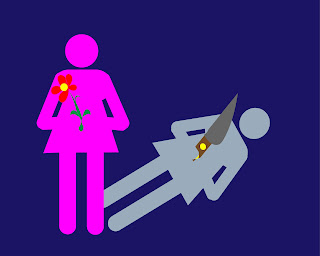John Baptist
27th February 2022
Reading my previous blog, The Fear Beads, one might wonder whether religious practices can only bring about bad outcomes. Obviously, NO! It is the intention that makes a practice healthy or unhealthy. If the motivation for religious practice is transformation and not fear, then it is good and serves its purpose. The renowned Mexican monk, Richard Rohr, says, “Practice is an essential reset button that we must push many times before we can experience any genuine newness”. To develop something new and lasting, practice is necessary. Through lack of practice, newly gained behaviour and insights can actually die off.
The value of practice is greatly recognized in fields such as sports and in creative endeavours, however its need is yet to be adequately acknowledged in the world of religion and spirituality. A practice that constantly opens oneself to God’s presence will initiate transformation. Practices like reciting the rosary, using prayer-beads, attending novenas, saying mantras, making processions and pilgrimages, performing genuflections and prostrations, blessing oneself physically, burning candles or incense, if done with mindfulness, can neurologically rewire the brain. Rewiring our brain can help us see reality in a new way. Religious and spiritual practices have the power to help us discover an ever-larger notion of God, reality and ourselves, provided we outgrow an infantile and magical understanding of these practices (Richard Rohr). Infantile and magical perceptions of religious practices blind us to seeing God, who is ever-present in ordinary and daily human experiences. On the contrary, a mature understanding of religious and spiritual practices can shatter our rigid and narrow understanding of the Divine and set us free to see the Divine presence in and around us.
Any practice that opens our inner eyes to see God is holy and acceptable. Let our religious and spiritual exercises become a reset button for self-transformation, enhancing our awareness of God in creation, in others, and in ourselves.
Notes
Richard Rohr, The Importance of Practice, https://cac.org/the-importance-of-practice-2021-12-15/








